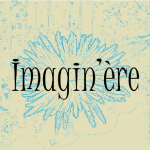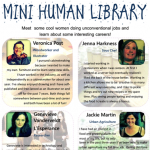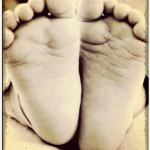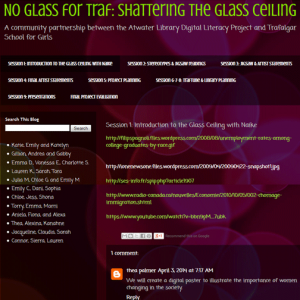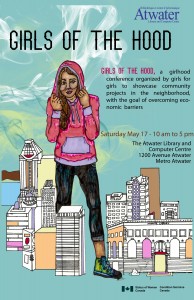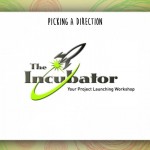Faire Nous-Mêmes Zine Group
From March 2014 to October 2014 we collaborated with “3I: Influence, Initiate, Impact” a youth project of Breast Cancer Action of Quebec (BCAQ). This project aimed at helping young women from immigrant families to depict their personal stories and celebrate relationships, awareness, diversity, understanding, and self-love, through the art of zine making.
The initial stage of the project was guided by two CEGEP students who uncovered creative ways the group could collaborate and reach a broad audience. We discussed the purpose of the zine and developed a plan.The girls consciously looked for imagery that represented what they look like and identify with. Relentless internet searches proved this to be a difficult task. Instead they used their imaginations and developed digital skills to create their own media and take back their representation.
As we progressed, the workshop series continued to support and encourage each young woman to experiment with a variety of programs and techniques. We created a space to address the needs of individual and collective objectives.
The open collaboration and flexible model of exchange encouraged a forum for expression and action. The workshop series provided training and support for hands-on experience to design and create media that reflects identities and issues that matter to young women.
The final zine is a unique collection of art and creative writing that encourages young women to become positive agents of social change. The participants then used their zine as an educational tool, working with younger children to discuss barriers they’ve encountered and overcome.
At a more grassroots level, the zine encourages stakeholders to constantly question what we see, what we are being told, and to actively resist the idea of being complacent (however we are socialized to be).
These young women were able to use their creativity and digital media skills to spread awareness about issues that matter most to them, empowering them to choose issues they care about as they become the next generation of employable, engaged, skilled civic participants.
Pointe-Saint-Charles YMCA TeenZone
We began working with TeenZone girls group in September 2013, when we agreed to help the group working towards fundraising $2000 for their exchange trip. We supported approximately 15 at-risk girls with budgeting, planning, fundraising, event promotion, digital, financial and entrepreneurial skills.
In light of their upcoming exchange trip, the group expressed the desire of building some kind of tool to help them coordinate activities and access important contacts in case of emergencies while on exchange: thus we helped them to build their own mobile app.
By the end of the program, the girls raised 2/3 of their fundraising goal, through multiple fundraising activities, including bottle drive, singing in the metro, coffee house, crowd funding, bake sale, bagging groceries at the local IGA, a wake-a-thon, talent shows, and more.
Meeting weekly with the girls at TeenZone, we facilitated numerous workshops aimed at helping the group keeping on track with their fundraising goal. During the course of the fundraiser, we facilitated workshops on the following skills:
Aside from focusing on fundraising for their exchange, the girls’ participation in the project affected their confidence. Even after the project ended the group more easily engaged in conversations about multiple ways to react, and reason from different perspectives.
By focusing on and fostering the group’s participation and their interests, we encouraged the participants to remember and draw from their own experiences. This enabled them to draw inspiration from different aspects of their diverse experiences.
Young Parents' Program of Head and Hands
The Young Parents Program (YPP) at Head & Heads brings together a unique blend of individuals, in terms of diversity of socio-economic , backgrounds and ethnicities. It is also a group with a strong established sense of solidarity and support for one another, and a solid gender-based analysis inscribed within the Head and Hands mandate and operations. Predominantly composed of young women of color, YPP provides a safe space for young parents and parents-to-be to meet each other, to learn about helpful resources and programs, and ultimately to have fun, in a non-judgmental and sex-positive environment.
To kick off our working with the YPP, the participants and coordinator let us know that they would be interested in learning about unconventional careers. On June 5, 2013 we held a Mini Human Library, engaging YPP participants in conversations with women working in unconventional careers, be it not-traditionally-done-by-
In November of 2013, we reconnected with the Young Parents Program to commence a longer workshop series, beginning with a general brainstorming activity (using the Incubator Kit) to collectively determine the focus of our project with the parents. The exercise, though rather difficult and slow at first, ended up stimulating the parents with lots of positive and creative ideas. By the end of it, it was clear that the parents wanted to do something creative to raise money for a group activity. When we met again in January 2014, the parents had decided to do a photovoice fundraiser for a summer camp for them and their children, and so we began our journey together.
Initially our focus was on equipping the parents with solid project planning and management skills. Given that they were skeptical of their potential (and therefore of the project) from the start, it was important for us that they had all the necessary tools to properly plan and manage the photovoice fundraiser, so that they would not feel overwhelmed by it, and so that it would turn out to be a positive learning experience for them, thus boosting their self-confidence as well. At several stages throughout the project, the YPP coordinator mentioned to us that the parents were feeling stressed and anxious about the fundraiser (an indicator of their passion and commitment), and of our need to restructure and re-envision our role and approach. Our flexibility in adapting to the parents’ needs was crucial.
We began with meeting twice a month (increasing to once a week closer to the vernissage), on Wednesdays, during the regular YPP hours. Each session had been planned around a specific aspect of the photovoice fundraiser and the required skills:
- Session#1: brainstorming, fundraising 101 (with Incubator Kit), project planning and management;
- Session#2: fundraising 101, cont’d + Melissa and Juniper as guest speakers;
- Session#3: digital photography skill share
- Session#4: advertising 101, Microsoft Publisher skillshare + Liz guests
- Session#5: digital photography practice
- Session#6: storytelling, creative writing + Rae guest facilitator
- Session#9: event planning, video making, video editing + Rae & Liz guests
- Session#10: publishing/binding/photo editing skill sharing + CEGEP girls Photoshop skill share
The project culminated with a silent-auction vernissage hosted at Cafe 92, in NDG – the neighborhood in which Head and Heads and YPP are located. Although the parents remained skeptical of its potential until the very last minute, the vernissage turned out to be a success, where they managed to raise up to ⅓ of their final goal in just one night. Having their art and talents recognized in such a way, without having to “sell themselves” or compromise their values was pivotal to the parents (these were indeed concerns that were frequently raised by the parents when we were planning the vernissage). Also, managing to host such a successful event, while being able to keep it family friendly was also a pleasant surprise for them. It took a long time to counter the parents’ lack of confidence in themselves and their talents, but the final results were stunning. The YPP program coordinator mentioned to us that upon completing the photovoice fundraiser, the parents seem to have gained confidence as well as significant fundraising skills, as they have approached their next fundraising project head on.
Working with YPP was a beautifully rewarding experience, as it gave us the opportunity to work on an exciting creative project, with a group of passionate and committed individuals. It was also a powerful learning experience for us, as it provided us with profound insights on the daily realities of young mothers, their marginalized communities, and the barriers they face: this challenged and motivated us to come up with new, innovative ways to help them get around those barriers and attain their goals.
After attending the group’s ‘Have your say’ session and offering suggestions of possible workshops, we have begun to focus on fundraising for group trips as a vehicle for gaining budgeting, planning and entrepreneurial skills. We will develop career shadowing experiences and other media production skills such as interview skills, video and image manipulation, and how to develop personal brands. Through the delivery of these workshops we will also connect the group to successful female role models. It is estimated we will work with 10 young mothers through this program. We recently completed a successful workshop which employed the ‘Incubator Kit’ to help the participants plan an entrepreneurial group project. The workshop was lead by gender specialist Sofia Guerrieri and supported by Flower Lunn who runs a small business and also is a mother.
Trafalgar School for Girls
Trafalgar School for Girls is an all-girls private Anglophone secondary school in Downtown Montreal, Quebec. The school serves students at Secondary I – V levels.
On April 29th of 2013, Charmaine Lyn, Director of the Office of Admissions, Equity & Diversity, Faculty of Medicine at McGill University, gave a presentation to students participating in the Career Day. The presentation focused on gender inequalities in the workplace and the idea of “having it all”.
We also supported their Personal Development course and assisted in their Youth and Philanthropy Initiative (YPI). YPI is a program that allows the students to pick a charity and make a presentation about the charity to the YPI organization. YPI selects a charity based on this exercise to donate $5000. We offered the girls professional interviewing skills so that they can conduct interviews with their community partners and helped them with other media production skills such as video and image manipulation to record their experiences.
The media skills component was a means to an end as we hope the chief economic benefit for the girls would be confidence building and access to positive role models. At the workshop on interviewing skills, professional National Public Radio producer Amanda Aronczyk offered professional guidance and also offered tips and insight regarding gender issues pertaining to her work. For example, she encouraged the participants to embrace the technical side of any profession. She mentioned that this helped her get her start. This was a well placed piece of advice for the students at Trafalgar School for Girls because the school has been finding ways to encourage the students to become interested in the STEM (Science, Technology, Engineering and Math) fields and this has been driving some of their educational strategies. It was helpful to have a speaker explain how technical skills were essential to the start of her career. She believed mastery of technical skill for radio has continued to open doors for her career, particularly as a woman. This is a good example of how we are using role models. This helped address one of the needs that we reported during the needs assessment process. Gender specialist Sofia Guerrieri led the rest of the session with role-play activities.
We have also offered to provide budgeting and financial literacy workshops as needed.
During the gender and media literacy component, facilitator Laura Francois and the girls brought to light some of the stereotypes and inequalities that girls and women still face in today’s day and age. The students explored these ideas through different art projects such as video and artist statements. They focused on bringing awareness to the issues that girls face and how to change or break the glass ceiling. Check out the website they used for the workshops and read their artist’s statements.
We explored definitions and statistics on economic mobility and factors of exclusion. Activities including small group discussions, lectures, games, role-playing, individual reflection, content analysis, and digital literacy training, encouraged the girls at Trafalgar to become engaged in a comprehensive reflection on barriers to the economic prosperity of women.
Girls of the Hood
With the support of the Atwater Library, a girl-led conference committee was formed, predominantly of CEGEP students, to organize a fun and innovative conference that would bring young artists, activists, entrepreneurs and inspirational girls and young women together to present their creative work, network, form partnerships and collaborations and plan future strategies and projects. The CEGEP students were joined in their activities by young women from the project’s partner organizations, who contributed their vision for the conference.
The Girls of the Hood conference showcased neighbourhood projects with the goal of helping girls and young women overcome barriers to economic prosperity. Mélanie Joly gave the keynote address on “Dare to be yourself” and there were panel discussions on entrepreneurial women, re-envisioning the world through activism and art, community groups fostering economic empowerment, and women in alternative or non-traditional careers.
In addition to planning the conference, this awesome committee both facilitated and participated in a range of workshops designed to address barriers to economic success as identified in a needs assessment conducted by the Atwater Library. In collaboration with partner organizations, new workshops were continuously imagined and created as the need and interests arise.
Workshops address topics suggested by the girls from partner organizations and range from developing computer search skills, digital photography and animation, zine making, photo voice, coding, using social media to find employment, digital citizenship, privacy, strategic management of digital identity, gender in media and non-traditional employment opportunities – to name a few.
A special congratulations to the Girls of the Hood team: Sophia, Cassie Jones, Olivia Gaulin, Rana, Georgia Therriault, Nicole Sibthorpe and Stenia Down, for pulling off a fantastic conference!
YWCA Atelier Pop-Up
We facilitated two workshops at the YWCA supporting their Atelier Pop-up initiative. We offered digital skills workshops on photography and animation to young women, and also a social media and photography workshop. Our goal was to foster a girl-led project or activity to be determined by the girls.
We focused on photography as way to offer the participants information and digital literacy skills which was one of the barriers we uncovered during our needs assessment process. With the use of digital media and social media rapidly becoming a feature of many jobs, the participants learned a variety of skills that will increase their employability.
Centre social d’aide aux immigrants
Pioneer in the field of immigration, Centre social d’aide aux immigrants (CSAI) offers various services to newcomers. In addition to front-line services, CSAI contributes in the development of a network of ethnic organizations. CSAI also works towards raising awareness, promoting openness as a form of social responsibility, and welcoming our new compatriots.
A three hour workshop dedicated to the exploration of nonverbal communication in the context of preparing for a job interview was delivered to a dozen participants at CSAI. Active discussion, hands-on techniques and role play were used to highlight nonverbal communication as well as body language. Finally, social media and personal online profiles were brought to the forefront in illustrating the active nonverbal communication on the Internet. Understanding the benefits of social media and discussing the utility of personal profiles and social media were at the forefront of the group exercises in this section of the workshop.
Elizabeth House High School
Along with its residential programs, the Elizabeth House also offers a high-school for pregnant teens and new mothers.
Through extensive communication with the Elizabeth House management and Elizabeth House High School Program Coordinator, we identified a need for resources and skill development on the girls’ personal economic independence, specifically moving to a place of their own. We designed a series of workshops aimed at providing the students with tools and financial literacy skills to prepare moving out of their parents’ home.
In the spirit of encouraging young women and girls to become agents of social change, we engaged Melanie Espindola, former Elizabeth House resident, current Users Committee President of the Elizabeth House, and member of the Young Parents Program at Head and Hands, to lead and design all workshops.
Drawing on her own experiential knowledge as a young mother, Melanie designed all workshops to be fun and engaging, staying away from conventional educational approaches. Her main focus was to help the girls gain confidence around their own skillset. Through the use of games and other engaging activities, she shared important information on renting laws, organizational skills, and local resources.
She also adapted the Incubator Toolkit to the specific goal of the girls (moving out), to help them develop a proper budgeting plan and an organized process for their first move. Throughout the program, Melanie engaged in powerful conversations with the girls, including the discrimination that young mothers often face both because of their gender, age, and status. They discussed common stereotypes on single parents, and ways to access helpful and supportive resources.
Inter-tribal Youth Centre
The Inter-tribal Youth Centre (ITYC) is a project of the Native Friendship Centre of Montreal, established since 1999. The ITYC was created to target Aboriginal youths (ages 12-29) in Montreal by providing them a safe, welcoming, and non-judgmental environment where there are a variety of activities aimed to improve their livelihood.
We provided a Social Media Promotion workshop on using social media for positively promoting yourself online and for looking for work and opportunities. This workshop also functioned as an information gathering/brainstorming session about what types of workshops would be helpful going forward, and as an opportunity to gauge interest in workshops on entrepreneurship. The workshop was attended by five young women.
Jeunes en action
The Jeunes en action is a program of Emploi Quebec that centres on developing and carrying out a comprehensive plan of action that can help youth 18-24 find or keep a job, or stay in or go back to school .
We provided a two part workshop entitled Strategic Identity Management in a Digital Era. This workshop addressed how our online presence can positively or negatively affect our ability to achieve economic goals such as finding work, enrolling in college or university and pursuing entrepreneurial activities. We discussed strategies for using social media with specific attention to developing the ability to use tools such as LinkedIn, Facebook and Twitter to help find work, develop learning networks, and increase their professional networks.
The workshop was attended by 10 young women. We also assisted this group in developing a girl-led project, where they collaborated on producing a video. We supported individual young women in the group by finding internships and job shadowing opportunities at the Atwater Library and within our community network. We invited participants from this group to participate with the group who are planning our spring event and to join other workshops where possible.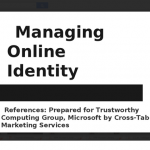
Mile End Hour of Code
Mile End Hour of Code is an initiative to help and encourage girls to learn coding. We supported this grassroots group of parents interested in giving teenage girls opportunities to learn the basics of computer programming. We supplied equipment and assisted during the workshops. Activities were developed based on the girls interest and commitment to this non-traditional field and subject.
Quebec Board of Black Educators
The Quebec Board of Black Educators (QBBE) mission is to promote the development of educational services for Black youth and other youth between the ages of 5 to 25 who reside in the Greater Montreal area.
We facilitated a two-part Gender and Mass Media workshop. This project integrated the Atwater Library’s mandate to provide media literacy with the commitment to develop young women as community leaders and role models. The workshop goals were to foster an awareness and understanding of stereotypes around gender in media.
We also facilitated an Internet Privacy and Media Literacy workshop called Growing Up Online: Figuring out digital identity, privacy and balancing risks & opportunities. Supporting a high school preparation program, we offered an Internet privacy and awareness workshop and discussion, which balanced the need to be mindful about the Internet with the ways in which social media can be an amazing tool for positive change. These workshops reached eight girls.
Saint Columba House Teen Program
Saint Columba House provides a high-quality bilingual After-School program to 60 children from the community of Pointe-Saint-Charles. The goals of this program are to enhance literacy and numeracy of children through a range of creative and recreational activities, homework help and one-on-one tutoring in both languages.
We developed an ad-hoc media program for their youth. Meeting once a week for approximately six months, we helped the youth develop digital, team building, and project planning skills while supporting them in the making of a short video about their community: the historically impoverished neighborhood of Pointe-Saint-Charles.
TeenZone and Concordia Theatre
After the TeenZone girls group had successfully raised funds, and had finished their exchange, they were in a position to act as positive role models and share what they learned and accomplished with others.
In an effort to empower the TeenZone girls to share their knowledge of economic strategies and success, they adapted and presented the incubator activity (which they had used for their own fundraising) to share with a group of Concordia Theatre students in a one hour workshop. The young women were motivated to understand and use the talent of the theater group to help them do more fundraising (theater skills + fundraising).
During the workshop 6 members of the TeenZone girls group introduced themselves and presented the adapted incubator kit to 7 Concordia Theatre students. The TeenZone girls guided the older Concordia students through the brainstorming process. Together the group generated new and interesting ways to fundraise within their community (like create a history book from current residences, compile stories and media to sell to raise funds for TeenZone).
The process of adapting the incubator activity and engaging community partners gave them an opportunity to further develop their skills for self-sufficiency. With the knowledge and experience they gained they are more prepared to engage other groups or individuals within their community. They also have a road map on how to create connections and meaningful collaborations that focus on attainable, creative and socially responsible goals.



